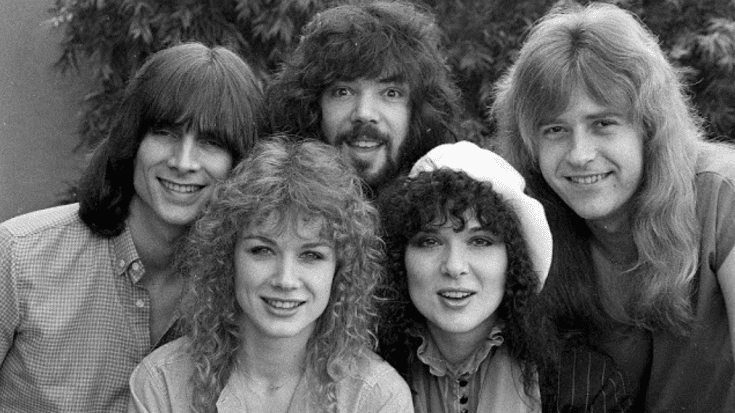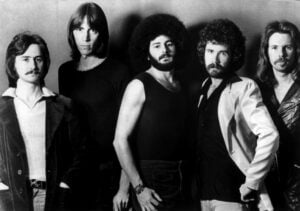How Heart Made Their Rock ’n’ Roll Dreams Come True: An In-Depth Interview

via Hideo Kadowaki / YouTube
The 1970s and 1980s were a time of hits, lawsuits, and rock and roll drama for Heart. When people talk about rock music from those decades, Heart almost always makes the list. The band—led by sisters Ann and Nancy Wilson—delivered soaring vocals, sharp guitar riffs, and a unique mix of hard rock and folk. But their rise wasn’t just about chart-topping hits and sold-out arenas. Heart’s journey was filled with legal battles, lineup changes, media scrutiny, and the constant fight to stay relevant in a fast-moving, often unforgiving music industry.
Finding Their Sound in the 1970s
Heart’s story really took off in the mid-1970s. The Wilson sisters teamed up with a group of Canadian musicians who had previously performed under the names White Heart and Hocus Pocus. With Ann on lead vocals and Nancy eventually joining on guitar, the band began developing its signature sound.
Their breakthrough came in 1975 with the album Dreamboat Annie, recorded in Vancouver. The record introduced the world to hits like “Crazy on You” and “Magic Man.” Ann’s powerful voice, combined with Nancy’s blend of acoustic and electric guitar, gave Heart a distinct presence in a crowded rock scene. But success didn’t come easily. Rock was still a male-dominated world, and critics often focused more on the sisters’ appearance than their musical talent. Many dismissed them as a passing trend. But the Wilsons didn’t back down—they pushed harder, proving both on stage and in the studio that they were the real deal.
Lawsuits, Labels, and “Barracuda”
As Heart’s fame grew, so did the drama. A bitter legal dispute ended their relationship with Mushroom Records, which had tried to stir up controversy in 1977 by publishing a fake story about the Wilson sisters. The stunt backfired, and the band took legal action.
That same year, Heart signed with Portrait Records and released Little Queen. The album featured “Barracuda,” one of their most aggressive and iconic tracks. According to Ann Wilson, the song was inspired by Mushroom’s sleazy publicity stunt. “Barracuda” wasn’t just a hit—it became an anthem of defiance, turning betrayal in the business world into pure rock energy.
Dog & Butterfly and Bebe le Strange: Flying High
By the end of the 1970s, Heart had become a household name. Their 1978 album Dog & Butterfly showcased their range, placing soft ballads alongside hard rock songs. Whether you loved or criticized Ann’s vocals or Nancy’s guitar work, few could deny the chemistry that had become the band’s trademark.
But the pressure of constant touring and creative output began to take its toll. In the late 1970s, Heart underwent lineup changes—longtime bassist Steve Fossen and guitarist Roger Fisher both left the group. Despite the shakeups, the Wilson sisters remained the core of the band, keeping it moving forward.
Their 1980 album Bebe le Strange proved they weren’t slowing down. Even with a new lineup, the Wilsons’ vision and drive kept the fire alive. Heart wasn’t just surviving—they were evolving.
The 1980s: Reinvention and Mainstream Success
With the 1980s came a new challenge. Pop, glam rock, and MTV were changing the rock landscape. While some ‘70s bands faded into nostalgia, Heart made a bold comeback.
In 1985, they released the self-titled Heart album, which featured slicker production and a more radio-friendly sound. The record catapulted them back to the top of the charts with hits like “What About Love,” “Never,” and especially “These Dreams.”
“These Dreams” was particularly significant—it became the band’s first No. 1 single and featured Nancy Wilson on lead vocals. While Ann had long been the band’s vocal powerhouse, this moment proved that Nancy could shine just as brightly. Meanwhile, Ann continued to impress with powerhouse ballads like “Alone,” released a few years later.
Heart’s ability to adapt wasn’t their only strength. The Wilson sisters’ natural charisma made them a perfect fit for the MTV era. Their music videos captured their energy and personality, keeping longtime fans engaged while drawing in a new generation.
Stress, Scrutiny, and Staying Strong
With success came new pressures. The sisters remained close, but creative tensions occasionally surfaced. Ann’s commanding stage presence and Nancy’s growing role as lead singer and songwriter created a natural dynamic of push and pull.
Meanwhile, media scrutiny was relentless. Ann faced cruel comments about her weight, while Nancy was often praised more for her looks than her talent. The Wilson sisters were weary of being objectified, but they refused to back down. Instead, they doubled down on their artistry, continuing to make meaningful music.
While tabloids and critics focused on appearances, Heart was building a songbook that would stand the test of time. Tracks like “Barracuda,” “Magic Man,” “These Dreams,” and “Alone” became timeless classics—arena staples and radio mainstays for decades.
The Lasting Legacy of Heart in the 1970s and 1980s
Looking back, the 1970s and 1980s were the decades that defined Heart. The Wilson sisters proved themselves to be fearless, talented, and trailblazing in a male-dominated genre. They battled record labels, reinvented themselves in the MTV era, and broke barriers along the way.
Their music was emotional, intense, and unafraid to challenge the norms. It captured the spirit of the times. Heart didn’t just keep up with the rock scene—they helped shape it. They showed that women could not only compete but also lead in rock and roll.
In the 1990s and beyond, the Wilson sisters would face new challenges—from adapting to the grunge era to reuniting for later tours—but it was their rise in the ‘70s and dominance in the ‘80s that cemented their legacy. The songs from those decades still carry a special magic, reminding fans of a time when Heart ruled both the stage and the airwaves.













